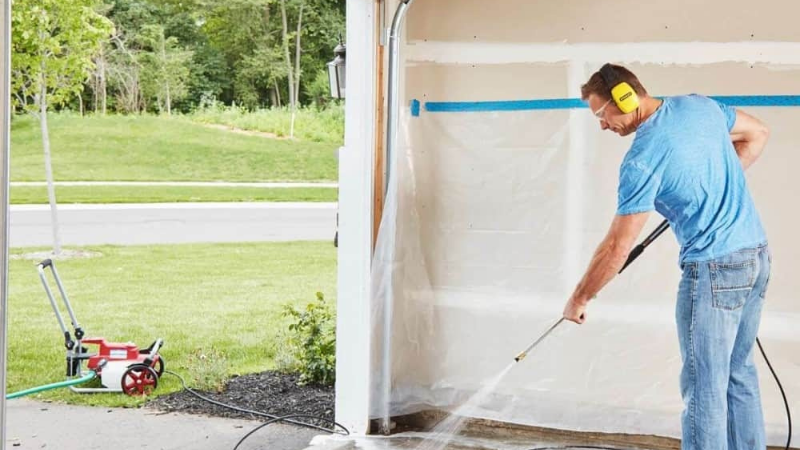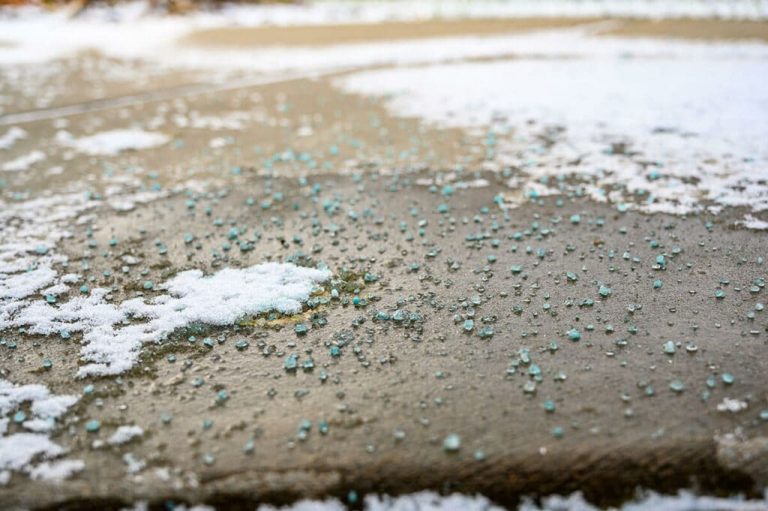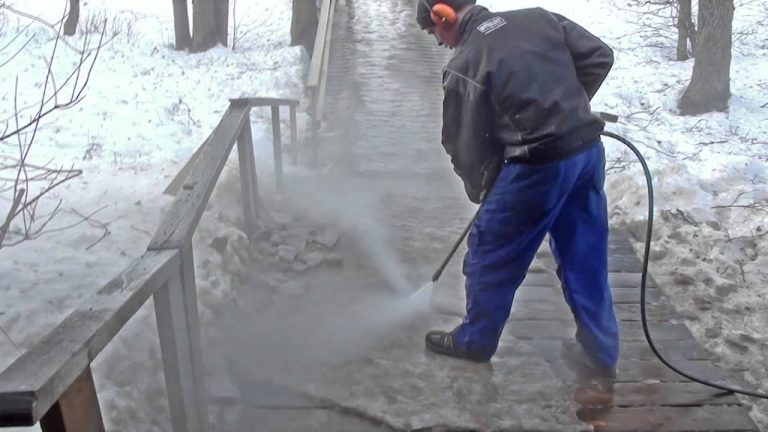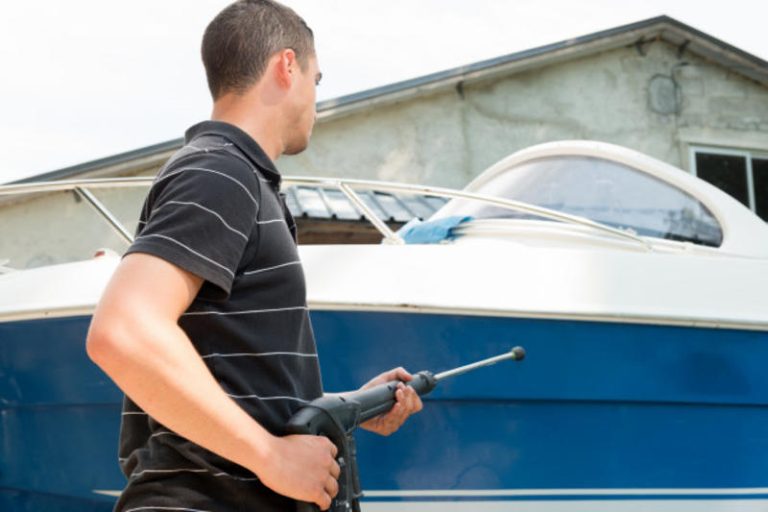
Pressure washers are powerful tools that can blast away dirt, mold, and grime — but just because they’re effective outside doesn’t mean they belong indoors. So the question is: Can you safely use a pressure washer inside your garage or inside your home?
The short answer: not usually — and not without serious precautions. Let’s break down the risks, exceptions, and safe alternatives for indoor power washing. 🚿🧠
🧯 Why Indoor Pressure Washing Is Risky
Pressure washers, by design, create high-pressure water spray — sometimes up to 4,000 PSI. Indoors, that can quickly lead to:
- 🚨 Water damage to drywall, insulation, wiring, and floors
- 💧 Pooling water that seeps into floors and baseboards
- ⚡ Electrical hazards if water contacts outlets or wiring
- 🧱 Structural damage if water gets behind walls
- 🫁 Mold growth from trapped moisture
In most cases, it’s just not worth the risk. Even in a garage, things can go wrong quickly if you’re not extremely careful.
🚫 Indoor Areas Where Power Washing Is Never Safe
- Bathrooms
- Kitchens
- Basements
- Attics
- Hallways
- Finished garages or laundry rooms
- Rooms with carpet, drywall, or wood floors
Unless the room is designed to be waterproof (like a commercial kitchen or certain industrial facilities), a pressure washer can wreak havoc.
🏠 What About Using a Pressure Washer in a Garage?
Using a pressure washer in an attached or detached garage might be possible, but only under the right conditions:
✅ The garage is unfinished or has concrete floors
✅ There are no exposed outlets or electrical devices nearby
✅ You have adequate drainage (like a floor drain or sloped surface)
✅ You’re cleaning non-delicate items like a car engine bay, tires, or garage floor
✅ You’re using a low-pressure setting (or electric washer, not gas)
💡 Still, even with these precautions, there are better alternatives in most cases.
Browse Amazon Here For Top Rated Power Washers And Accessories
🔌 Gas vs. Electric Indoors: Huge Difference
One of the most important distinctions is what kind of pressure washer you’re using:
| Type | Indoor Safe? | Why or Why Not? |
|---|---|---|
| Gas-powered | ❌ No | Emits carbon monoxide; deadly in enclosed spaces |
| Electric | ⚠️ Maybe | Requires GFCI outlets and extreme caution |
| Battery-powered | ⚠️ Maybe | Safer, but still needs drainage & splash control |
Never use a gas pressure washer indoors or in enclosed garages. The carbon monoxide fumes are odorless, colorless, and potentially fatal. 🚫🛑
🧽 Safer Alternatives for Indoor Cleaning
If your goal is to deep-clean surfaces inside your home or garage, consider these safer substitutes:
- Electric pressure washers with a wide spray tip and lower PSI (1,300–1,800)
- Foam cannons for soapy application followed by hose rinse
- Wet/dry shop vacuums with a blower feature
- Steam cleaners for tile, grout, or sealed concrete
- Scrub brushes with cleaning solutions (manual but effective)
These tools don’t carry the same risk of water intrusion or electrical hazards.
🧼 How to Pressure Wash a Garage Floor (the Safe Way)
If you’re determined to clean your garage floor with a pressure washer:
- Clear out everything — furniture, tools, boxes, etc.
- Sweep thoroughly to remove dust and loose debris
- Cover any exposed outlets or electrical cords
- Apply a degreaser or detergent for oil stains
- Use a 40° nozzle tip and stay under 2,000 PSI
- Work in small sections, and avoid spraying walls or joints
- Use a wet vac or squeegee to remove standing water
- Allow the floor to dry completely before putting items back
🧠 Bonus: Consider applying a concrete sealer afterward to protect the surface from future stains!
⚠️ Special Considerations for Attached Garages
- Water can seep under the adjoining door and enter the house
- Moisture buildup in an attached garage can lead to indoor humidity issues
- Improper drainage can result in mildew, slippery conditions, or mold
Always test your drainage and minimize overspray.
🏗️ Commercial & Industrial Exceptions
In some industrial settings (e.g., commercial kitchens, warehouses, or food prep areas), indoor pressure washing is common — but only because:
- The buildings are designed for heavy-duty cleaning
- They have floor drains and sloped concrete
- Workers use PPE and follow strict safety protocols
- Equipment is commercial-grade and waterproof-rated
These scenarios are very different from home use.
🧠 Final Tips for Indoor Power Washing (If You Must)
- Use low PSI (under 1,500)
- Keep distance from walls and corners
- Avoid spraying outlets, fixtures, or insulation
- Work in short bursts — do not drench the area
- Have towels, wet vac, or dehumidifier nearby
- Test an area first to check for splashback or leaks
🏁 Final Thoughts
Can you use a pressure washer indoors or in your garage? Technically, yes — but only under strict conditions. 🚧
For the average homeowner, it’s safer to use alternative cleaning methods or hire a professional for tough interior jobs. Power washers belong outdoors — and when in doubt, scrub it out! 💪🧽
Browse Amazon Here For Top Rated Power Washers And Accessories






